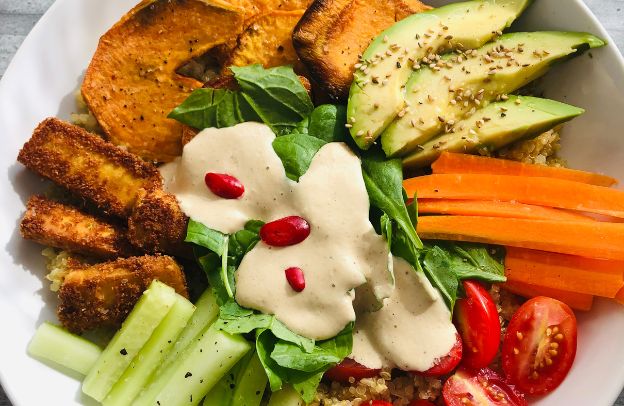In the pursuit of improved physical well-being, exploring rich African nutrition is a promising and culturally enriching journey. Nutrition plays a pivotal role in our overall health, and the diverse culinary landscape of Africa offers a unique opportunity to discover nutrient-rich foods and sustainable eating practices. If that is what you are interested in, then you are in the right place.
Understanding African Diets
Traditional African diets boast a rich combination of food groups, including whole grains, legumes, fruits, vegetables, and lean proteins. Each of these components contributes to a well-rounded and balanced nutritional profile.
Dietary habits in Africa are heavily influenced by cultural practices and regional availability of ingredients. Recognizing these factors is crucial in understanding the diverse approaches to nutrition across the continent.
Nutrient-Rich African Foods
Discover the nutritional powerhouses of Africa, such as moringa, baobab, teff, and millet. These foods are not only rich in essential vitamins and minerals but also carry unique flavors that can enhance the culinary experience.
Incorporating nutrient-dense African foods into your diet can lead to improved energy levels, better immune function, and enhanced overall health. These ingredients also contribute to a well-balanced and diverse diet.
Addressing Nutritional Challenges
Identifying and addressing prevalent nutritional deficiencies, such as vitamin A, iron, and iodine, is crucial for promoting optimal health. Awareness and targeted interventions can mitigate these challenges.
The following is from a publication, titled: The State of Food Insecurity in the World Meeting the 2015 international hunger targets: taking stock of uneven progress.
“Based on the latest estimates, about 795 million people remain undernourished globally, down 167 million over the last decade, and 216 million lower than in 1990–92. This means that just over one in every nine people in the world are currently unable to consume enough food to conduct an active and healthy life.”
Strategies for Overcoming Challenges
Explore strategies for overcoming challenges in accessing diverse and nutritious foods. Supporting local farmers and markets, as well as promoting sustainable agriculture, are effective approaches to address nutritional gaps.
Educating communities about the importance of a balanced diet and fostering awareness regarding nutritional needs are fundamental steps in promoting healthier eating habits across Africa.
Sustainable Eating Practices
Embrace sustainable eating by supporting local farmers and markets. This not only strengthens local economies but also ensures a fresh and diverse supply of nutrient-rich produce.
Exploring Farm-to-Table Eating
Understanding the origins of your food through a farm-to-table approach fosters a deeper connection to the source and promotes sustainable agricultural practices.
Fusion of Traditional and Modern Nutrition
Blend traditional African recipes with modern dietary guidelines. Experiment with local ingredients in contemporary dishes, creating a fusion that respects cultural roots while meeting modern nutritional needs.
Success Stories of Adoption
Explore success stories of individuals who have adopted a balanced African-inspired diet. These stories serve as inspiration for those looking to embark on a journey towards healthier eating habits.
You can also consider checking out the following article: African Heritage Diet as Medicine: How Black Food Can Heal the Community, available on Eatingwell.com.
The article discusses the importance of embracing and celebrating the African Heritage Diet as a source of empowerment and healing within Black communities. The author, Tambra Raye Stevenson, shares her personal journey of rediscovering her Black food roots and the impact of traditional foods on the health and well-being of her grandmothers.
The author emphasizes the diversity of Black food culture, spanning regions such as the Caribbean, South America, the Southern U.S., and more. It strives for a broader understanding of Black food beyond stereotypes, recognizing its dynamic and evolving nature.
Personalized Wellness Plans
Recognize the importance of tailoring nutrition advice to individual needs and preferences. Seek guidance from nutritionists to create personalized meal plans based on traditional African diets.
Tips for Personalized Meal Plans
Incorporate a variety of nutrient-dense foods into your personalized meal plans, ensuring a balance of macronutrients and micronutrients tailored to your specific health goals.
Physical Activity and Nutrition Synergy
Understand the symbiotic relationship between diet and physical activity. Traditional African exercise routines complement a balanced diet, contributing to overall physical well-being.
Encourage a holistic approach to well-being by combining mindful eating with regular physical activity. This synergistic approach enhances the benefits of both nutrition and exercise. What is a holistic approach to wellbeing?
A holistic approach to well-being involves considering and addressing the various interconnected aspects of an individual’s life to promote overall health and balance. This approach recognizes that physical, mental, emotional, social, and spiritual dimensions are all interconnected and play significant roles in a person’s well-being.
Overcoming Myths and Stereotypes
Challenge and dispel misconceptions about African diets. Recognize the diversity and nutritional richness of African cuisines, debunking myths that may hinder exploration and adoption.
Promoting Positive Narratives
Promote a positive and inclusive narrative about African nutrition. Celebrate the vibrancy and health benefits of traditional African foods, fostering a broader appreciation for the continent’s culinary heritage.
Conclusion on Nutrition Tips for Improved Physical Wellbeing in Africa
Embarking on a journey to explore African nutrition offers not only a path to improved physical well-being but also a celebration of cultural diversity. Consider incorporating nutrient-dense foods, adopting sustainable practices, and embracing a holistic approach to health.
This will help you to energize life and contribute to a positive narrative surrounding African nutrition. It’s time to savor the flavors, embrace the traditions, and nourish both body and soul.








Hi there, I log on to your blog daily. Your story-telling
style is awesome, keep doing what you’re doing!
Over the past week, I’ve been an avid visitor to this awesome website with top notch user content. The site owner excels at engaging visitors. I’m so happy and hope they keep up their magnificent work.
hiI like your writing so much share we be in contact more approximately your article on AOL I need a specialist in this area to resolve my problem Maybe that is you Looking ahead to see you
Hi my loved one I wish to say that this post is amazing nice written and include approximately all vital infos Id like to peer more posts like this
I do agree with all the ideas you have introduced on your post They are very convincing and will definitely work Still the posts are very short for newbies May just you please prolong them a little from subsequent time Thank you for the post
Excellent blog here Also your website loads up very fast What web host are you using Can I get your affiliate link to your host I wish my web site loaded up as quickly as yours lol
you are in reality a just right webmaster The site loading velocity is incredible It seems that you are doing any unique trick In addition The contents are masterwork you have performed a wonderful task on this topic
Hey there You have done a fantastic job I will certainly digg it and personally recommend to my friends Im confident theyll be benefited from this site